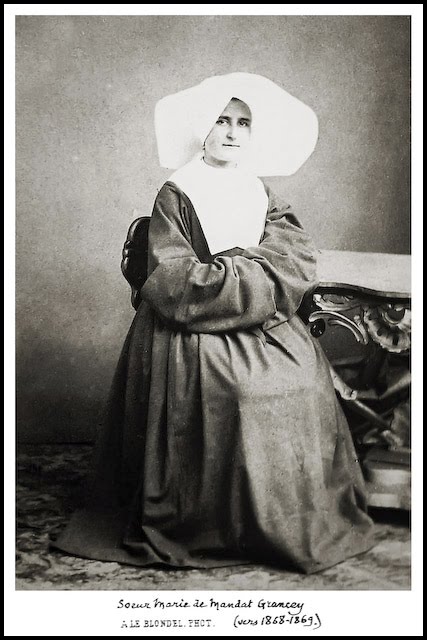Second Assignment is to the small orphanage at Le Pecq, a Paris suburb, during the Franco-Prussian war that caused a great number of orphaned children. It’s here that Sister Marie displays her great ability to organize.
Sister Marie’s new job at Le Pecq was to head an orphanage that had expanded far beyond its capacity due to the Franco-Prussian war. That conflict began in 1870 when France and Prussia were at odds over the regions of Alsace and Lorraine. It caused severe conditions and resources were scant, but she would not be denied on behalf of the poor orphans.
The Germans won the short war and claimed that the two regions were rightfully theirs, but the majority of people living there were French.
Le Pecq is located in a loop of the Seine River about 11 miles west of Paris and at the foot of the castle of Saint-Germaine-en-Laye. Its territory is distributed on two banks of the Seine and includes the small Corbiere Island.
Sister Marie displayed organizational leadership qualities developed during her time at Aire-sur-la-Lys, which became so familiar to those who knew her. She had already been recognized as a community visionary and named Sister Servant.
The war brought a disaster to Le Pecq where great numbers of children were orphaned. When Sister Marie arrived there, the number of orphans had just doubled, so she mustered her forces, then learned that another group of orphans had just been dropped off for the care of the Sisters. That tripled the number of children at the orphanage.
The Sisters sought the help of Le Pecq’s citizens. It was here that Sister Marie displayed her great leadership qualities and explained how they should seek the assistance of the people.
She had the courage to beg in the streets for food, clothing and beds, “for your children, the children of Le Pecq.” And she challenged local citizens to support and recognize the efforts of the poor sisters, and the people responded.
The people soon discovered that Sister Marie had a sense of righteousness and responsibility and that she was very direct in expressing it. Some said she was blunt, but none thought of her as offensive. Citizens also learned that she trained her sisters to say, “Please help us to care for your children.” She wanted people to know that the responsibility to care for these orphans truly belonged to the people of Le Pecq and not to the Sisters.
About four years after Sister Marie’s arrival, she was asked to receive a young Sister Jeanne, who had just completed seminary. She was told there was a question of whether the new Sister had a vocation, that she had the desire to be a Daughter of Charity, but that she seemed physically unfit for it.
Sister Jeanne still had four years before she must take the vows, or be dismissed. Sister Marie accepted the challenge, set up a schedule for Sister Jeanne – massage, exercise and work periods – and also became her therapist, counselor and spiritual aide, and soon she began to show improvement.
During the twenty years of Sister Marie’s leadership in Le Pecq, local authorities and Daughters of Charity in Paris decided that there no longer was a need for an orphanage. The Sisters mission had been accomplished.
Segment 6: A whole new world was about to open up for Sister Marie.
For previous segments scroll down the left toolbar to Dan Murr's Series.
Sr. Marie De Mandat-Grancey Foundation
P.O.Box 275
Cold Spring Harbor, NY 11724 USA
P.O.Box 275
Cold Spring Harbor, NY 11724 USA
" I am not a priest and cannot bless them, but all that the heart of a mother can ask of God for her children, I ask of Him and will never cease to ask Him." ~ Sister Marie

“The grace of our Lord be with us forever.” ~ Sr. Marie










